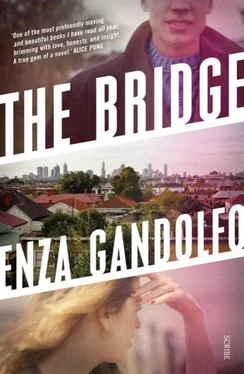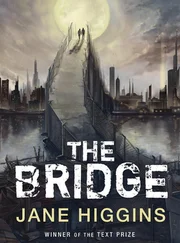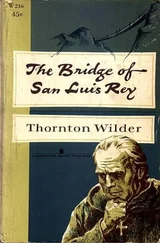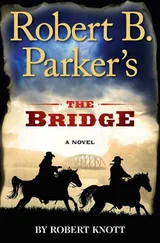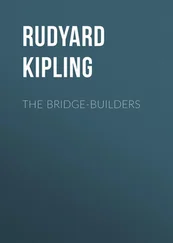‘We’ll drop her off at Bernie’s. And she’s stopping in for lunch. We’ll have those pasties and later we’ll take her down to The George. Bob says they need a waitress.’
The town’s centre was one long strip with a dozen or so shops and cafés, the supermarket and the pub, and a couple of restaurants, including The George, which was a substantial white building on the corner. Across the main road and down the hill there was the bay beach and the pier.
The hostel was a weatherboard house with a wide bullnose verandah and a rusted corrugated-steel roof. When Jo rang the doorbell, a blonde woman in her early twenties opened the door. She had a strong German accent. Once Jo explained that she was after a dorm bed, the woman introduced herself as Diane and led Jo through to the kitchen. On the table was an opened laptop, and she sat in front of it. ‘To register I need your ID.’
‘I only have a bank keycard,’ Jo said, realising as she pulled it out of her purse that she would have to come up with some story to explain the name difference.
‘You said your name was Ashleigh — what’s the J?’
‘Joanna Ashleigh Neilson,’ she said. ‘But I hate Jo, so I go by Ashleigh.’
‘Do you have any other ID?’
‘No,’ she said, ‘just the card.’
‘I’m supposed to get a couple of IDs. A driver’s licence?’
‘I don’t drive. But I can take some money out of my account and give you a deposit. Okay?’
‘Sure. I guess if you know the pin, it must be your card.’
Sue and Laurie lived in a large two-storey brick house on the hill at the back of town. From their living room, there was a view of the wide expanse of the bay, of the south part of the township and their own extensive garden, divided into several sections — herbs; vegetables; an orchard with apples, oranges, figs, and plums; and a large section of native bushes and flowers. That first afternoon, they sat on the balcony and ate hot pasties with Sue’s homemade chutney. Laurie asked endless questions — what are you doing in Portarlington? How long will you stay? What work do you do? Did you finish school? Are you planning to go to university? Jo was as evasive as she could be. I needed a break. Not sure how long I’ll stay. I’m a waitress. I haven’t finished school, but I plan to one day . Not sure about university… Finally Sue said, ‘Laurie, enough with the inquisition. Lunch doesn’t give you the right to pry. If she has secrets, she’s under no obligation to tell us.’
Was she transparent? Could everyone see she was hiding something? And if they could sniff out her lies, how long would it be before she was exposed? A welt of panic rose and she blushed. But Laurie dropped the questions and they spent the rest of the meal talking about the town and Sue and Laurie’s decision to retire by the sea.
Later, when Laurie left to play golf and Sue and Jo were alone, Sue said, ‘Laurie was a lawyer in another life. He can catch the whiff of a secret from the other side of the bay.’
They were still sitting on the balcony. The rain had stopped and the smell of damp grass wafted up the hill. A mist hung low to the ground, but the sky had transformed into a broad expanse of blue, with only a smear of the finest white clouds. Jo gazed out at the bay, the pier and the fishing boats, and the now clear outline of Melbourne. Her mother would arrive home to an empty house. She’d call out, frustrated and angry at the lack of response, until she discovered Jo gone. Mandy would be worried, of course, but she would be relieved too. Surely she would be relieved. ‘I don’t… I want to have a break.’
‘Sure,’ Sue said. ‘You can’t run forever, but sometimes we all need a break.’ She raised an eyebrow and smiled, and Jo knew she wouldn’t pursue the issue — at least not for now. ‘How about I take you to town and introduce you to Justin.’
While she followed Sue through the house and down the steps to the car, there was a moment when Jo thought about telling Sue everything. Mary went to confession regularly — she said it made her lighter. She said, God wipes the slate clean if you are truly sorry . Sue wasn’t God, but maybe God didn’t exist at all and priests were just ordinary men dressed in fancy clothes; maybe the lightness came from the act of confession itself.
But Jo didn’t tell Sue. No one could forgive what she’d done. Killing your best friend was unforgivable.
Sue took her to The George and introduced her to the manager, Justin, who was sitting drinking a beer and peering at an open laptop.
‘I’ll wait for you outside,’ Sue said.
Justin was much younger than Jo had expected. She guessed mid-twenties.
‘So Dad offered you a job,’ Justin said.
‘He suggested you might.’
Justin grinned. ‘Don’t worry, Portarlington is a small town. It’s the way things get done here. And I do need a waitress.’
Jo sat down opposite Justin. She was nervous, expecting him to ask for references or the names of past employers. She’d already decided she’d make an excuse for not having them — a stolen bag on the train. But Justin only asked her a few questions about her waitressing history. ‘Do you have a Responsible Service of Alcohol certificate?’
‘No, I’ve been working in a café and I didn’t serve alcohol,’ Jo lied, and wondered if she’d be allowed to work in a licensed restaurant without one. She did have an RSA — she’d completed the training earlier in the year — but she thought the police might have cancelled it and she didn’t want to take the risk.
‘It’s fine. You can help in the kitchen and serving the food. We’ll work around it. The barman usually looks after the drinks anyway. We’re so short-staffed at the moment, I need you. Fill in the employee details,’ he said, handing her the form. ‘If you can start tonight, that’d be great. I had to call one of the waitresses in and she’s struggling to find a sitter for her kids.’
‘Really? Tonight.’
‘Sure.’
‘I was expecting you’d want a CV, which I didn’t bring, and I lost my phone so I don’t have a phone number.’
‘It’s a waitressing job. If you drop plates on the customers’ laps we’ll have to let you go, otherwise no problem. But you will need a phone. You might be able to pick up a cheap one in Drysdale.’ He was grinning, taking pleasure in the moment, as if sitting talking to her were all he wanted to do, as if work were not stressful at all. Her shoulders dropped, the tension easing. Grandpa Tom as a young man might have looked like Justin: tanned and hair bleached blond from spending too much time in the sun. She couldn’t imagine Grandpa Tom wearing the bone earrings or leather strap bracelet around his wrist, but they suited Justin. ‘Come in at four, and I’ll show you around.’
On the way back to the hostel, Sue gave Jo a guided tour of the town centre, which wasn’t much more than the main shopping strip, made up mostly of cafés and restaurants. Jo said she needed a black skirt or pants and white shirt to wear to work and Sue took her to her favourite op shop, in a small garage that backed onto the car park at the rear of the shopping strip. The elderly woman behind the counter was leaning on a walker and chatting with a slightly younger woman, who was sorting through a box of recent book donations. Behind them, racks of clothes stretched the length of the shop. The women greeted Sue by name and she joined their conversation about the council proposal for controlling the jet-skiers over the summer.
Jo had spent her childhood in op-shop clothes, living with other children’s smells, their stains, their rips and tears. She hated it. As soon as she could afford to buy her own clothes, she refused to go into another op shop. But here, in a small change room, an old brown curtain drawn across, surrounded by the odours of other people’s lives — stale perfume and sweat — she could transform herself into a girl called Ashleigh, who worked in restaurant in a small country town by the sea, a world away from the girl who killed her best friend, the girl with an impending court case, who lived in a city where she was too scared to walk out the front door.
Читать дальше
